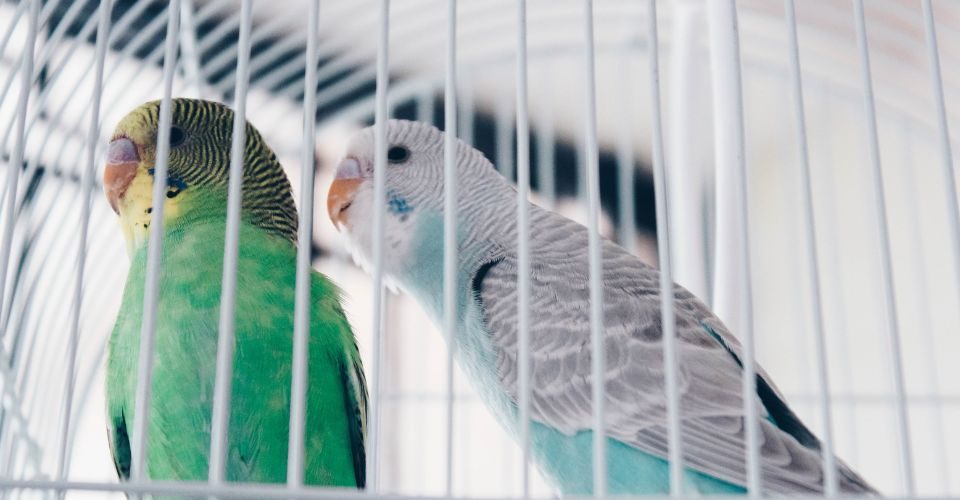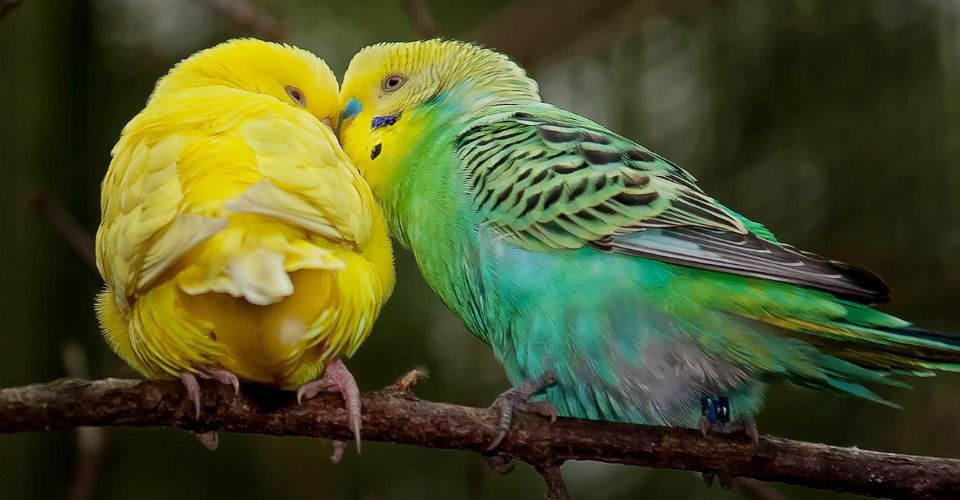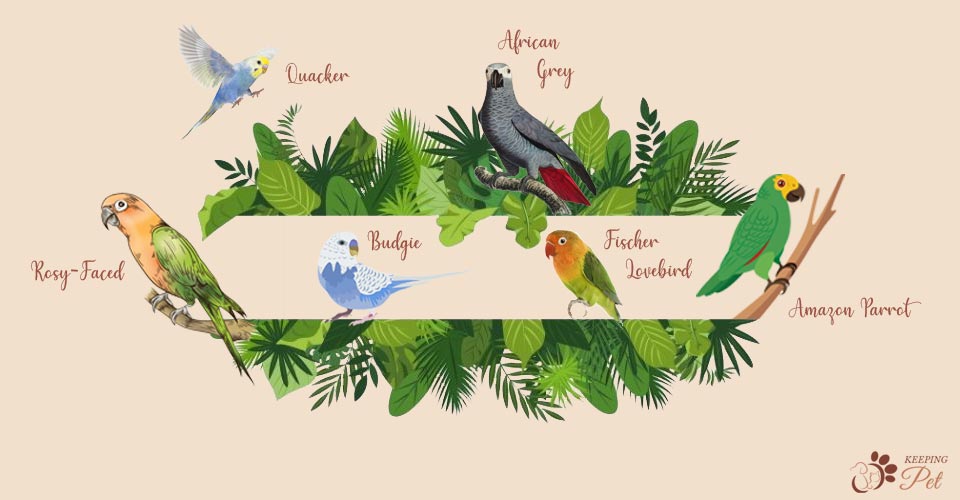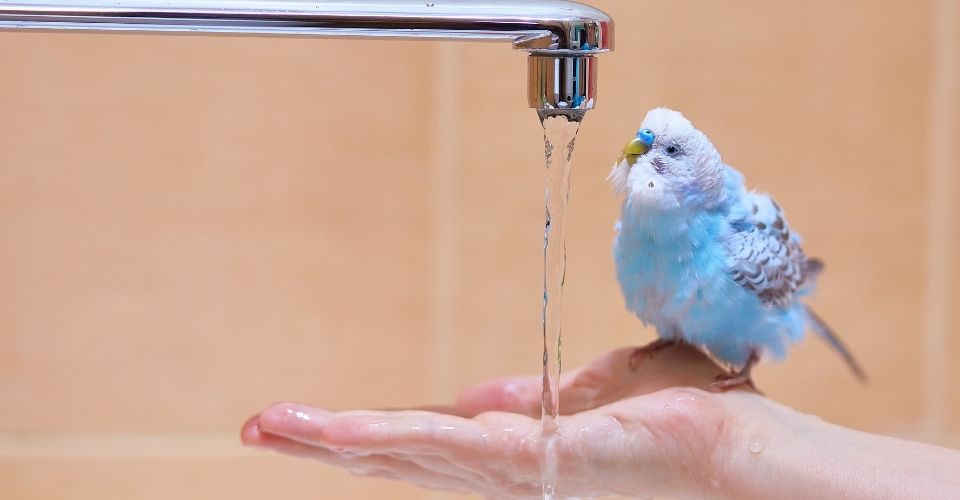Budgies are monogamous: unlike most animals, they only have one mate for life. But even after being committed to single honey, your budgies might still not mate. What is wrong? Are they not interested in each other anymore?
No – budgies do not cheat! Then why are my budgies not mating?
Top 6 Reasons Why Are My Budgies Not Mating
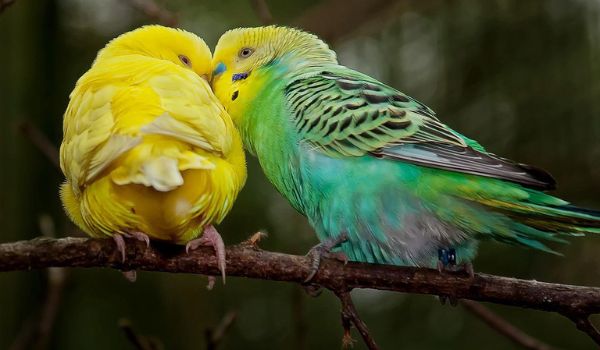
If everything is alright, that is, the time and space, budgies breeding can be a piece of cake. But there are some foremost things that you might be doing unknowingly that hinder the normal mating process.
1. The Female Is Too Young
While purchasing bird pets, make sure opposite sexes belong to the same age groups. If there is a significant age difference between the male (cock) and female budgie (hen), the probability of them breeding drops drastically. Most significantly, if the hen is much younger than the cock, he might simply not get attracted to her and therefore show no interest in mating. Note that a female budgie being too old can also cause the same problem.
2. There Is a Problem With the Diet
A problematic, imbalanced, and innutritious diet can hinder the mating process in budgies. Upon the onset of the breeding season, budgies need a highly nutritious diet to breed successfully. Moreover, you will need to transition your budgie to a pellet-based diet and offer some vitamin supplements.
Add greens and eggs as well. Eggs not only contain a favorable amount of calcium and protein for female birds to lay eggs easily, but they are also a bit aphrodisiac – compelling your lovebirds to procreate.
Lafeber Tropical Fruit Nutri-Berries offers what nutrition parrots need – fruits, grains, vitamins, minerals, omega fatty acids… you name it! It is a complete diet that keeps your budgies’ reproductive health intact.
Read: What Do Parakeets Eat?
3. The Need for Privacy
Give your flying pals time alone to be intimate with each other. If the cage is located in a busy, noisy area (light music can be an exception, though!) or if they do not feel secure for some reason, they will not mate. Even when you put the cage in a calm and relaxed place, always be super quiet when you clean it, add new food, or just look at your bird to see if they are okay.
Note that parakeet parents need a relaxed and right environment after babies hatch from their eggs to breed again. Therefore, be extra cautious when taking care of newborns.
4. Territoriality Can Cause Trouble
Pet insecurities! Make sure you keep your budgie couples in separate cages, or the males might end up fighting each other owing to their territorial instincts. Females would not stay behind as well: if successful breeding takes place, other female budgies might raid the nest and destroy the eggs.
Be cognizant of the fact that several breeders tend to keep all budgie pairs in the same cage; nevertheless, their only goal is to make money, and they put the question of territorial instincts on the back burner. This is not a good practice. You should avoid buying from such breeders in the first place, but if you buy from them, separate the couples ASAP.
5. Are You Sure About Their Gender?
You need to ensure that your budgies are of the opposite gender. You might know how to identify a budgie’s sex, but you can still make a mistake. For instance, cere, the fleshy covering above the beak, is a good source of telling the gender of a parakeet due to its color: males have it bluish as they age while females, tan or brownish. However, in some color mutations, such as pale, solid, and yellow, the cere never changes its color.
What you can do is to take the help of the professionals. A vet can tell you exactly what genders are your budgies of, or you can also rely on the DNA test.
6. They Will, But You Are Impatient
Lastly, whether it training a dog, keeping cats out of the room, teaching your parakeet how to talk, or getting your parakeets to mate – all need patience. You will have everything set up perfectly, but you might still have to wait for some time to see the baby chicks.
It may be because budgies need to adjust to their environment to feel secure, after which they mate. So, take it easy!
How to Encourage Budgies to Breed?
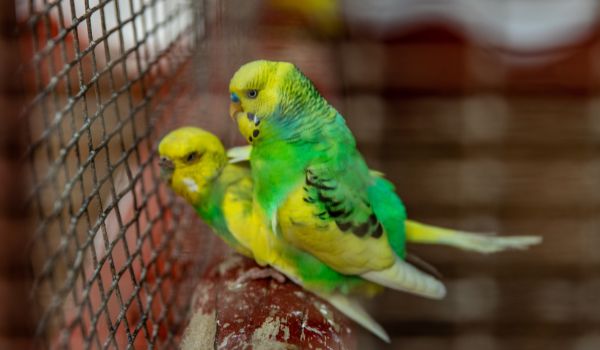
If procreating your budgies is the main goal, you do not only have to get them to mate but also increase the chances of them conceiving.
- Age Factor: While budgies can breed after 6 months, you should wait until they are at least one year old. As far as maximum age is concerned, male budgies must not be older than five years and females, four years.
- Beware of the Season: Budgies usually breed between October and March or when it rains. Increase your efforts during this time especially.
- Get the Right Food: Ensure you fulfill the diet criteria mentioned previously for your budgies. Also, keep them healthy and fit, and make yearly visits to the avian vets.
- Healthy Background: Get the breeding history of budgie parents before you buy them. Preferably, go for those with strong immunity and a healthy weight. Nonetheless, note that this season changes in different geographical locations.
- Water Quantity: During budgie breeding season, they need fresh and enough water. It can also prevent them from fighting over the resource.
- Sunlight/Vitamin D: Budgies must have at least 12 hours of total darkness every day. Similarly, the female ones must get enough sun exposure to synthesize enough vitamin D for stronger eggs and bones.
- Temperature: The perfect temperature for budgie breeding lies between 18 and 24 degrees Celsius.
- Nest Boxes: After about a week of introducing the pair, provide it with a nest box to give an extra sense of security, maximizing the chances of breeding.
Conclusion: Why Are My Budgies Not Mating?
Budgies often do not mate when there is a significant age difference, diet is imbalanced, or their privacy is compromised. If there is no age difference and you are providing a balanced diet and complete privacy to your budgies, chances are you have parakeets of the same gender.
If you just brought home a budgies breeder pair, set up everything perfectly, and it’s the breeding season, then you should give your budgies some time—they will start warming up to each other and mate after settling in. Remember that parakeets are monogamous birds, so if you separate a breeder from its partner, coupling him/her with a new partner would be problematic.

